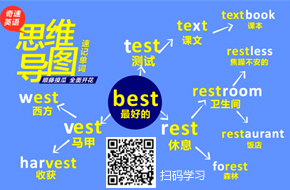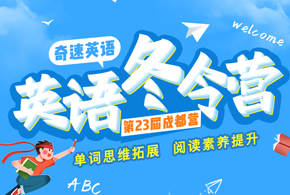冬至,又称日短至、冬节、亚岁等,兼具自然与人文两大内涵,既是二十四节气中一个重要的节气,也是中国民间的传统节日。冬至是四时八节之一,被视为冬季的大节日,在古代民间有“冬至大如年”的讲法。冬至习俗因地域不同而又存在着习俗内容或细节上的差异。在中国南方地区,有冬至祭祖、宴饮的习俗。在中国北方地区,每年冬至日有吃饺子的习俗。
“冬至”英语怎么说?
冬至:Winter Solstice。“solstice”表示“the time of eitherthe longest day in the year (about June 22) or the shortest day in the year(about December 22)”。一年中最长的一天(大约6月22日)或是一年中最短的一天(大约12月22日)。
因此,这个单词的用法就很局限,基本就用来表示冬至:Winter Solstice,夏至:Summer Solstice。
如何用英文介绍“冬至”习俗?
Winter Solstice is a time for the family to get together.One activity that occurs during these get togethers (especially in the southern partsof China and in Chinese communities overseas) is the making and eating of Tangyuan or balls of glutinous rice, which symbolize reunion.
冬至是家族团聚的一天。在这天,中国南方的家庭会包汤圆、吃汤圆,以象征团圆的意思。不过在中国北方,似乎更多的人会吃饺子。比如说会有“冬至到,吃水饺”这样的谚语。
Particularly, in Northern China, people generally eat dumpling on the Winter Solstice , a custom signifying a warm winter. Extended family members may gather together to make dumplings. In Northern China, dumplings are commonly eaten with a dipping sauce made of vinegar and chili oil or paste, and occasionally with some soy sauce added in.
尤其是在中国北方,人们通常在冬至那天吃饺子,这是一个意味着温暖冬天的习俗。大家庭的成员可以聚在一起包饺子。在中国北方,饺子通常是蘸醋、辣油或酱汁吃的,有时还会加点酱油。
中国人为何重视“冬至”?
其实,从中国文化方面讲,“冬至”这个日子还可以翻译成“Dongzhi Festival”,中国人为什么比较重视这个节气?原来是和“阴阳”相关。人们认为,过了这一天,白昼一天比一天长了,是一个节气循环的开始,“阳”气逐渐回升,因此算是个吉利的日子。
The origins of this festival can be traced back to the yin and yang philosophy of balance and harmony in the cosmos. After this celebration, there will be days with longer daylight hours and therefore an increase in positive energy flowing in.
“冬至”相关词语
【习俗】:custom
【饺子】:Dumplings , Chinese meat ravioli, Jiaozi
【馄饨】:Wonton, dumplings in soup
【米团】:Rice dumpling
【长线面】:Long noodle
【冬至】:winter solstice / Dongzhi
【汤圆】 :Tangyuan Glutinous rice ball / rice ball
【二十四节气】:24 Solar Terms
【冬至祭祖】:Offering a Sacrifice to the Ancestors on the Winter Solstice
冬至节一些“冬至”习俗?
据历史学者介绍,3000多年前,周朝以“日影”最长的一天作为新一年的开始。从这个意义上说,冬至就是曾经的年。所以中国有句古话说:“冬至大如年”。
As early as Zhou Dynasty, people worshipped the gods on the day of the Winter Solstice, which was also the first day of the new year. The Winter Solstice became a winter festival in Han Dynasty. The celebratory activities were officially organized. On this day, both officials and common people would have a rest.
早在周朝时期,人们会在冬至当日,也就是当时新年的第一天祭拜神灵。汉朝时,冬至成为了冬天的节日,朝廷会举行正式的庆祝活动。这一天,百官和庶民都会停工歇息。
在随后的朝代,如唐、宋、元朝,冬至这天要进行祭神祭祖。至明清时期,冬至依旧长盛不衰,民间又有“肥冬瘦年”之说,可见这一节气的重要。
吃坚果
隆冬来临,万物运转趋于停歇。在此期间,适当地吃点坚果,例如花生、核桃、栗子、榛子和杏仁,对身体有好处。
Traditional Chinese medical science teaches that the quality of a nut is tepidity and most nuts have the function of nourishing the kidneys and strengthening the brain and heart.
传统中医学认为,坚果性温,绝大多数坚果都有补肾、强心、健脑的功效。
吃饺子
“冬至到,吃水饺。”据说,冬至吃水饺的习俗是为纪念“医圣”张仲景。行医途中,他见沿途乡民饥寒交迫,耳生冻疮,便用羊肉等材料制成耳朵形状的“娇耳”,送给人们驱寒。这便是“饺子”的由来。
During Winter Solstice in North China, eating dumplings is essential to the festival. There is a saying that goes "Have dumplings on the day of Winter Solstice and noodles on the day of Summer Solstice."
在中国北方地区,吃饺子是冬至的关键活动。俗话说:“冬至饺子夏至面。”
还记得么,有些地区是立冬日吃饺子呢。你的家乡是哪个节气吃饺子呢?
馄饨
苏州人习惯在隆冬时节吃馄饨。相传苏州百姓把馄饨作为庆祝冬至的食物,是为了纪念大美人西施。
Local legend has it that on the midwinter feast 2,500 years ago, the King of Wu (one of the states during the Western Zhou Dynasty and the Spring and Autumn Period) was tired of all kinds of costly foods and wanted to eat something different. Then, the beauty Xishi came into the kitchen to make "wontons" for the king. He ate a lot and liked the food very much.
据传,在2500年前的吴国宴席上,吴王厌倦了山珍海味,想换个口味。美人西施去厨房做了一道叫“馄饨”的菜来满足他的愿望。吴王大块朵颐,很是喜欢这种美食。
汤圆
冬至的汤圆也叫“冬至丸”“冬至团”,一家人齐聚吃汤圆,寓意“团圆”。在潮汕地区,吃汤圆有“添岁”之意,这就是所说的 “冬节丸,一食就过年。”
In many places, people eat tangyuan, a kind of stuffed small dumpling ball made of glutinous rice flour to celebrate Winter Solstice.
许多地方的人都会吃汤圆,一种包有馅料的糯米粉制成的圆形食物,来庆祝冬至。
羊肉粉丝汤
羊肉性温,味甘,具有温补气血的功效,是冬季进补的佳品。在宁夏回族自治区的银川地区,人们有冬至日喝羊肉粉汤的习俗。
On that day, it is customary for people there to eat mutton and vermicelli soup and soup dumplings. They give the midwinter soup a strange name: "brain",and share it with their neighbors.
在这天,人们有喝羊肉粉汤、吃汤饺的风俗。老百姓给这种冬至喝的汤起了一个奇怪的名字——“头脑”,并把它们分给左邻右舍。
年糕
冬至期间,杭州人有吃年糕的传统,民间也流传着“冬至吃年糕,年年都长高”的俗语。古时,在冬至到来之前,家家户户都会打年糕来祭祀祖先,或当作礼品送给亲朋好友。
Today, though fewer families eat home-made rice cakes, people there still buy rice cakes for the Winter Solstice Festival.
如今,尽管少有家庭还会吃自制的年糕,但人们依然会买年糕来庆祝冬至节气。
温馨提示:版权归原作者所有,推广的内容如有侵权,请您告知我们会在第一时间处理或撤销;互联网是一个资源共享的生态圈,我们崇尚分享。










